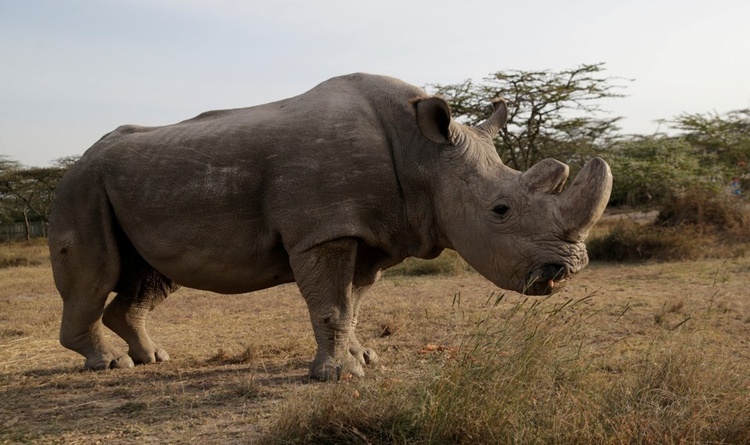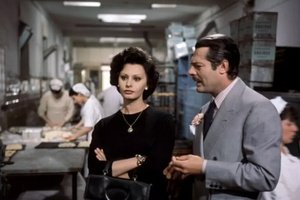The 45-year-old rhino was euthanised on Monday following “age-related complications”, researchers said on Tuesday.
The Ol Pejeta Conservancy in Kenya, where Sudan lived, made the decision to euthanise after his condition “worsened significantly”, to the point where he was no longer able to stand.
His muscles and bones had degenerated and his skin had extensive wounds, including a deep infection on his back right leg.
“[It was] the best option, given the quality of his life had deteriorated to a point where it was unfair to him,” chief conservation officer Samuel Mutisya told The Associated Press.
Researchers are now turning to Sudan’s reserved semen and that of four other dead rhinos, as well as the perfection of in vitro fertilisation techniques.
As the last remaining male, Sudan played an integral role in efforts to save the subspecies from extinction, along with the two surviving females.
One is his 27-year-old offspring, Najin, and the other is her 17-year-old offspring, Fatu.
In a few months, eggs will be extracted from the two females, said Jan Stejskal, director of international projects at Dvur Kralove Zoo in the Czech Republic, where Sudan lived before being transferred to Kenya.
Scientists have developed a technique to extract the eggs, using females from the similar southern white rhino subspecies from European zoos, Mr Stejskal said.
The genetic material would have to be transferred to a lab in Italy that he said was the only place where embryos of northern white rhinos can be created.
The Cremona-based assisted breeding company Avantea will aid the fertilisation process.
Avantea’s founder, Cesare Galli, produced the world’s first cloned bull, Galileo, in 1999, and the first cloned horse, Prometea, in 2003.
Prometa went on to produce a foal, Pegaso, in 2008.
Galli’s group also produced the world’s first cloned pigs, in a step closer to using their organs in human transplants.
Creating embryos has been tried only on southern white rhinos and it isn’t guaranteed the procedure will work on northern white rhinos, Mr Stejskal said.
Sudan was the last of his kind to be born in the wild, in the country with which he shares a name.
He was taken to the Czech zoo and then transferred to Kenya in 2009, along with the only other remaining northern white rhinos, the two females and a male who died in 2014.
They were placed under 24-hour armed guard and fed a special diet.
“However, despite the fact that they were seen mating, there were no successful pregnancies,” the conservancy said.
With ANSA












